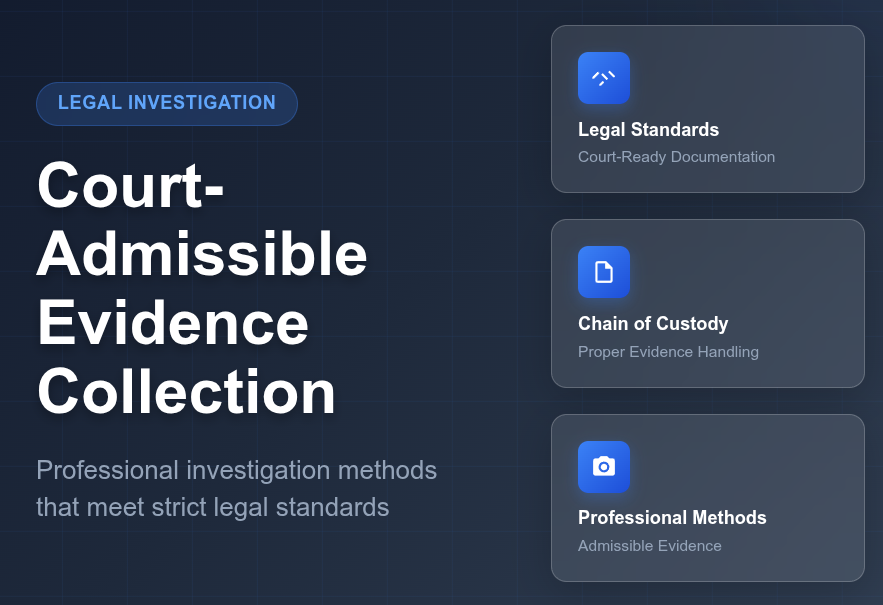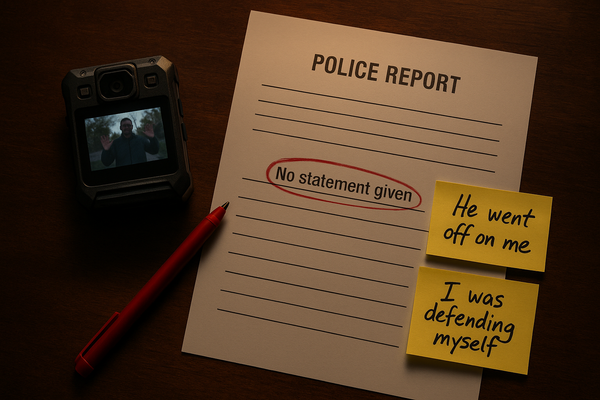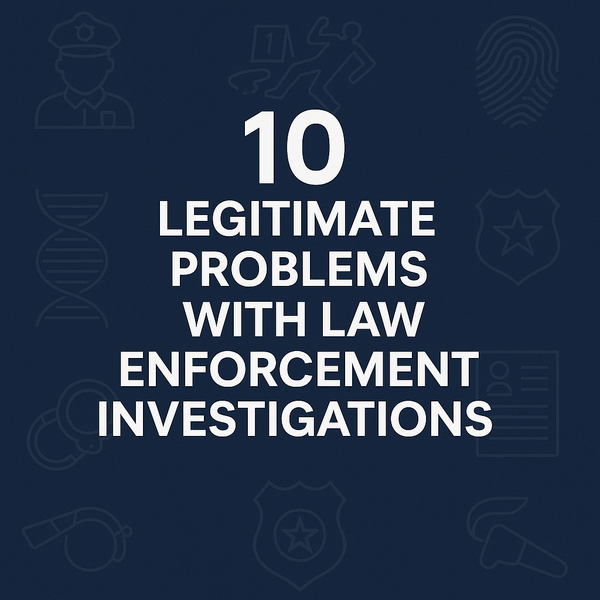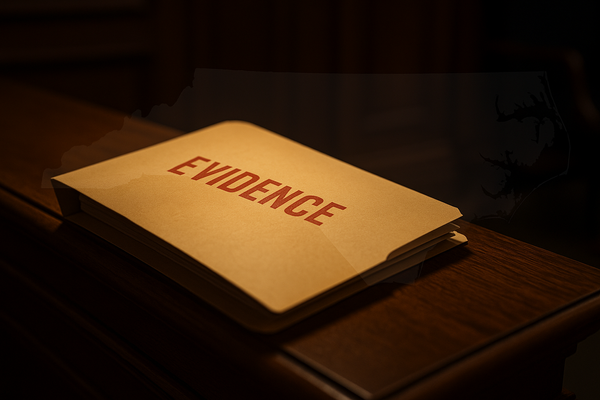How Private Investigators Gather Evidence That Courts Actually Accept

Legal professionals waste thousands of dollars each year on investigation evidence that judges reject. Smart attorneys partner with experienced private investigators who understand the strict evidentiary standards courts demand. This comprehensive guide reveals the specific methods professional investigators use to gather admissible evidence that strengthens your case rather than weakening it.
Why Most Investigation Evidence Gets Thrown Out of Court
Courts reject investigation evidence for predictable reasons that skilled private investigators actively prevent. Judges scrutinize evidence based on authentication requirements, chain of custody protocols, and constitutional protections that many amateur investigators ignore.
The North Carolina Rules of Evidence require investigators to establish authenticity through witness testimony, distinctive characteristics, or expert analysis. Private investigators document every step of their evidence collection process to meet these authentication standards. They photograph evidence in its original location, maintain detailed logs of handling procedures, and preserve metadata that proves when and where they obtained digital evidence.
Constitutional violations destroy even the most compelling evidence. Professional investigators study Constitutional protections, privacy laws, and state-specific regulations that govern surveillance activities. They secure proper licenses, understand reasonable expectation of privacy standards, and document their legal authority to conduct investigations.
The Foundation: Proper Documentation and Chain of Custody
Successful private investigators treat documentation as their most critical tool. They create contemporaneous notes that courts can verify, photograph evidence from multiple angles, and maintain unbroken chains of custody that satisfy legal scrutiny.
Every piece of evidence requires specific documentation protocols. Investigators photograph items before collection, during packaging, and after storage. They record exact times, locations, weather conditions, and witness information. These detailed records help attorneys authenticate evidence during trial proceedings.
Chain of custody documentation proves that evidence remains unaltered from collection to courtroom presentation. Investigators use tamper-evident seals, secure storage facilities, and detailed transfer logs. They photograph each seal application and document every person who handles evidence throughout the investigation process.
Digital evidence demands additional authentication measures. Professional investigators preserve original files, create forensic copies using specialized software, and maintain detailed logs of their digital investigation procedures. They document IP addresses, timestamp information, and metadata that proves digital evidence authenticity.
Surveillance Evidence That Stands Up in Court
Courts accept surveillance evidence when investigators follow specific legal protocols and technical standards. Professional investigators understand privacy laws, obtain necessary permissions, and use equipment that produces clear, admissible footage.
Location determines surveillance legality. Investigators can photograph or record activities visible from public spaces without violating privacy expectations. They cannot use telephoto lenses to capture activities inside private residences or record conversations without proper consent. Professional investigators research local privacy laws and obtain legal guidance before conducting surveillance operations.
Technical quality affects admissibility. Courts require clear images that accurately represent observed activities. Investigators use professional-grade cameras, ensure proper lighting conditions, and maintain equipment that produces timestamp-accurate recordings. They test equipment before surveillance operations and maintain backup recording systems.
Audio surveillance requires additional legal considerations. Most states require one-party consent for recording conversations, while others demand all-party consent. Professional investigators understand these distinctions and obtain proper consent or court orders before recording conversations. They use equipment that clearly captures voices and maintains accurate timestamps.
Digital Investigation and Electronic Evidence
Modern private investigators leverage digital tools while maintaining evidence integrity that courts demand. They understand computer forensics, social media investigation techniques, and electronic discovery protocols that preserve digital evidence authenticity.
Social media investigations require careful methodology. Investigators document privacy settings, capture screenshots with visible timestamps, and preserve metadata that proves content authenticity. They use specialized software that maintains chain of custody for digital evidence and creates forensic copies that courts accept.
Email and communication records demand specific preservation techniques. Professional investigators work with IT specialists who understand legal discovery requirements. They preserve original email headers, maintain server logs, and document communication metadata that proves message authenticity and transmission times.
Computer forensics investigations require specialized training and equipment. Licensed investigators use write-blocking hardware that prevents data alteration during analysis. They create bit-by-bit copies of hard drives, maintain detailed forensic logs, and follow procedures that satisfy Daubert standards for expert testimony.
Financial Investigation and Asset Tracing
Courts accept financial evidence when investigators follow banking regulations and maintain proper documentation. Professional investigators understand privacy laws, work with financial institutions through legal channels, and document asset trails that attorneys can present effectively.
Bank record investigations require legal authority. Investigators obtain court orders, subpoenas, or client authorization before requesting financial information. They work with banking compliance officers who understand legal discovery requirements and maintain records that satisfy court authentication standards.
Asset searches combine public records research with professional database access. Licensed investigators use specialized tools that compile property records, business filings, and asset registrations. They document their search methodology and maintain records that prove asset ownership and valuation.
Hidden asset investigations require sophisticated techniques. Professional investigators analyze lifestyle indicators, trace financial transactions, and identify discrepancies between reported income and observed spending. They document their analytical methods and maintain evidence that supports their asset location conclusions.
Working with Expert Witnesses and Testimony
Private investigators often testify about their findings, requiring preparation that satisfies expert witness standards. Professional investigators understand courtroom procedures, prepare detailed reports, and present evidence clearly to judges and juries.
Qualification as an expert witness requires specific credentials and experience. Professional investigators maintain training records, professional certifications, and case experience that courts recognize. They prepare detailed CVs that demonstrate their expertise in specific investigation areas.
Report preparation follows legal standards that courts expect. Investigators create detailed narratives that explain their methodology, document their findings, and support their conclusions with admissible evidence. They include photographs, witness statements, and technical data that attorneys can present effectively.
Courtroom testimony requires professional presentation skills. Experienced investigators speak clearly, answer questions directly, and explain technical concepts that juries understand. They review their reports thoroughly, anticipate cross-examination questions, and maintain professional demeanor under aggressive questioning.
Technology and Future-Proofing Evidence Collection
Smart private investigators adopt emerging technologies while maintaining evidence standards that courts will continue to accept. They understand artificial intelligence verification, blockchain authentication, and digital forensics evolution that shapes future evidence requirements.
AI-assisted investigation tools enhance efficiency while maintaining accuracy. Professional investigators use software that analyzes surveillance footage, identifies persons of interest, and processes large data sets. They maintain human oversight of AI tools and document their analytical processes for court presentation.
Blockchain technology offers new authentication possibilities. Forward-thinking investigators explore blockchain timestamping, immutable evidence storage, and smart contract applications that prove evidence integrity. They prepare for future court systems that may require blockchain verification of digital evidence.
Video analytics and facial recognition technology provide powerful investigation tools. Professional investigators understand accuracy limitations, bias concerns, and legal challenges surrounding automated identification systems. They use these tools as investigative aids while maintaining human verification of results.
Conclusion: Building Cases That Win
Professional private investigators deliver evidence that courts accept because they understand legal requirements, follow proper procedures, and maintain professional standards throughout their investigations. Attorneys who partner with qualified investigators receive admissible evidence that strengthens their cases rather than creating legal vulnerabilities.
The investment in professional investigation services pays dividends when evidence withstands courtroom scrutiny. Smart legal professionals choose investigators based on their track record of producing admissible evidence, their understanding of current legal standards, and their commitment to professional development in emerging technologies.
Courts continue evolving their evidence standards as technology advances. The most effective private investigators stay ahead of these changes, invest in proper training, and maintain the high professional standards that ensure their evidence helps attorneys achieve successful outcomes for their clients.
Speak with an Aubor Group private investigator today.




